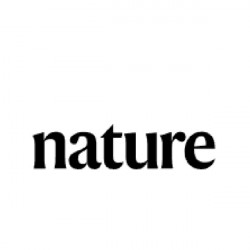Nature
History of the Journal Nature is bringing to life the science published in Nature since 1869.
Nature is a weekly international journal publishing the finest peer-reviewed research in all fields of science and technology on the basis of its originality, importance,
City of London, United Kingdom
Nature
3 years ago
Welcome to the Nature
Nature has been covering the latest in cutting edge research and science news for over 150 years.
Nature
3 years ago
Pluto's mysterious polygons explained
Polygonal shapes cover the icy surface of Pluto’s Sputnik Planitia region. The patterns, photographed by NASA’s New Horizons mission, are thought to be the result of slow-moving convection currents in the ice. Now, a new model shows that the driving force behind these currents is likely to be the sublimation of nitrogen ice into gas - an ongoing process on the surface of Sputnik Planitia. Read the paper here: https://www.nature.com/articles/s4158...
Nature
3 years ago
How gut reactions are shaping cancer treatment
An explosion of interest in the workings of the gut microbiome is fuelling career and funding opportunities in a wide array of fields. When Melody Smith began her fellowship in haematology and oncology at the Memorial Sloan Kettering Cancer Center in New York, she had no idea that she would soon be writing her own code, working with computational biologists and analysing faecal samples to understand the microbial composition — or microbiome — of the gut. Now at Stanford University in California, Smith is one of a growing number of researchers exploring how the complex and diverse populations of microbes in the body — known as the microbiota — influence how people respond to cancer treatments. More at Nature.com Picture: The bacterium Clostridioides difficile can cause severe infection in the intestines.Credit: D. Phillips/SPL

Nature
3 years ago
Powering up
A revolution in robotics and artificial intelligence (Updated 29 March 2022) At the end of the twentieth century, computing was transformed from the preserve of laboratories and industry to a ubiquitous part of everyday life. We are now living through the early stages of a similarly rapid revolution in robotics and artificial intelligence — and the effect on society could be just as enormous. More at Nature.com Image: Peter Crowther

Nature
3 years ago
Hepatitis B
Every year, more than 800,000 people worldwide die from hepatitis-B-related liver disease — a greater toll than from malaria. But efforts to curb transmission and discover a cure are picking up steam. Image: Chiara Zarmati

Nature
3 years ago
South Korea banks on biological resource clusters
The Korea Research Institute of Bioscience and Biotechnology is a research treasure trove of microbial and plant biological materials. When faced with a challenge such as a new pathogen, many researchers are turning to plant, animal, and human biological resources for answers as to how to prevent, diagnose and treat diseases. This is why organizations such as the Korea Research Institute of Bioscience and Biotechnology (KRIBB), in Daejon, are so vital for research into human health and disease. More at Nature.com Picture: A selection of microbial cultures from the Korean Collection for Type Cultures.

About Nature
Aims & Scope
Nature is a weekly international journal publishing the finest peer-reviewed research in all fields of science and technology on the basis of its originality, importance, interdisciplinary interest, timeliness, accessibility, elegance and surprising conclusions. Nature also provides rapid, authoritative, insightful and arresting news and interpretation of topical and coming trends affecting science, scientists and the wider public.
Nature's mission statement
First, to serve scientists through prompt publication of significant advances in any branch of science, and to provide a forum for the reporting and discussion of news and issues concerning science. Second, to ensure that the results of science are rapidly disseminated to the public throughout the world, in a fashion that conveys their significance for knowledge, culture and daily life.
Nature's original mission statement was published for the first time on 11 November 1869.
0.0
0 reviews


